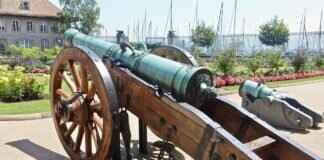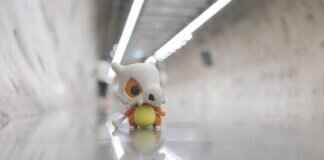This article explores common misconceptions and factual insights about water fasting, providing a comprehensive understanding of its benefits, risks, and the science behind this popular health trend.
What is Water Fasting?
Water fasting is a practice that involves abstaining from all food and caloric beverages, consuming only water for a specified period. This method can last anywhere from 24 hours to several days and is often undertaken for various reasons, including detoxification, weight loss, and spiritual or mental clarity.
Health Benefits of Water Fasting
Proponents of water fasting claim numerous health benefits. Scientific studies suggest that, when conducted properly, water fasting can lead to:
- Weight Loss: By inducing a caloric deficit, the body begins to use stored fat for energy.
- Improved Metabolism: Fasting may enhance metabolic health, influencing insulin sensitivity and blood sugar levels.
- Detoxification: Some believe that fasting allows the body to eliminate toxins more effectively.
Weight Loss and Water Fasting
One of the most significant outcomes of water fasting is rapid weight loss. During fasting, the body shifts from using glucose as its primary energy source to utilizing fat stores. This metabolic shift can lead to significant fat loss, although it is essential to consider the sustainability of such weight loss.
Caloric Deficit and Fat Burn
Creating a caloric deficit is crucial for weight loss. Water fasting naturally induces this deficit, leading to fat metabolism. However, it is vital to approach fasting with caution to avoid adverse effects.
Muscle Preservation During Fasting
Concerns regarding muscle loss during fasting are common. While some muscle loss may occur, strategies such as incorporating resistance training and ensuring adequate protein intake during eating periods can help minimize this risk.
Metabolic Benefits of Water Fasting
Research indicates that water fasting can positively impact metabolic health. It may lead to improved insulin sensitivity and more stable blood sugar levels, contributing to overall wellness and potentially reducing the risk of type 2 diabetes.
Common Myths Surrounding Water Fasting
Despite the benefits, many myths about water fasting persist. Understanding the truth behind these misconceptions is crucial:
Myth: Water Fasting is Dangerous
Many people believe that water fasting poses significant health risks. However, when done correctly and under medical supervision, water fasting can be safe for most individuals. It is essential to listen to your body and be aware of any adverse symptoms.
Myth: You Cannot Exercise While Fasting
Another common myth is that fasting prohibits physical activity. In reality, light to moderate exercise can be safely integrated during water fasting, provided that individuals stay hydrated and listen to their bodies.
Risks and Side Effects of Water Fasting
While there are benefits, water fasting also carries potential risks. Some side effects may include:
- Dehydration: A significant risk during fasting, it’s essential to monitor hydration levels.
- Electrolyte Imbalance: Prolonged fasting can lead to imbalances that may require medical attention.
Long-term Effects of Water Fasting
Understanding the long-term consequences of repeated water fasting is crucial. Potential health impacts can include nutrient deficiencies and metabolic changes, highlighting the importance of moderation and professional guidance.
Who Should Avoid Water Fasting?
Not everyone should engage in water fasting. Certain groups should consult healthcare professionals before attempting this practice:
- Individuals with Medical Conditions: Conditions like diabetes and eating disorders complicate fasting.
- Pregnant or Breastfeeding Women: Unique nutritional needs during these stages make fasting generally inadvisable.

What is Water Fasting?
Water fasting is a practice that involves the complete abstention from all food and caloric beverages, allowing only the consumption of water. This method has gained popularity among health enthusiasts and those seeking to improve their overall well-being. In this section, we will explore the definition, duration, and purpose of water fasting, providing a comprehensive understanding of this intriguing health trend.
Definition: Water fasting is defined as a period during which an individual refrains from eating any solid food or consuming any caloric drinks, relying solely on water for hydration. This practice can vary in duration, typically ranging from 24 hours to several days, depending on the individual’s goals and health status.
Duration: The duration of water fasting can greatly influence its effects on the body. Short-term fasts, lasting 24 to 72 hours, are often undertaken for detoxification or weight loss purposes. Longer fasts, exceeding three days, should be approached with caution and ideally under medical supervision, as they can lead to significant physiological changes. It’s important to note that the body begins to enter a state of ketosis after approximately 24 hours without food, where it starts to utilize fat stores for energy.
Purpose: The purpose of water fasting can vary widely among individuals. Some may seek to achieve rapid weight loss, while others may be motivated by the desire to detoxify the body or enhance mental clarity. Research suggests that water fasting may promote autophagy, a process where the body cleans out damaged cells and regenerates new ones, potentially leading to improved health outcomes. Additionally, some individuals report heightened focus and energy levels during fasting periods, which may be attributed to hormonal changes that occur in the body.
It’s crucial to understand that while water fasting can offer benefits, it is not suitable for everyone. Individuals with certain medical conditions, such as diabetes or eating disorders, should approach fasting with caution and consult healthcare professionals before embarking on such a regimen.
In summary, water fasting is a method of abstaining from food and caloric beverages, relying solely on water. Its duration can vary from short-term fasts to longer ones, with purposes ranging from weight loss to detoxification. As with any health practice, it is essential to consider individual health status and consult with a healthcare provider when necessary.

Health Benefits of Water Fasting
Water fasting, a practice that involves abstaining from all food and caloric beverages while consuming only water, has gained popularity as a method for improving health and well-being. Many supporters claim that this fasting technique offers numerous health benefits. In this section, we will explore the scientifically-backed advantages of water fasting, focusing on weight loss, improved metabolism, and detoxification.
Weight Loss is one of the most frequently cited benefits of water fasting. When the body is deprived of food, it begins to utilize stored fat as its primary energy source. This process, known as lipolysis, occurs when insulin levels drop and the body starts breaking down fat stores. Studies have shown that individuals who engage in water fasting can experience rapid weight loss, especially in the initial stages, as the body sheds excess water weight and begins to burn fat.
Creating a caloric deficit is essential for effective weight loss. Water fasting naturally induces this deficit, as individuals consume no calories during the fasting period. As the body transitions to using fat for energy, it not only helps in reducing weight but also promotes better fat metabolism. However, it’s important to approach fasting with caution, as prolonged fasting can lead to muscle loss. Strategies such as refeeding with nutrient-dense foods after fasting can help preserve muscle mass.
In addition to weight loss, water fasting may provide metabolic benefits. Research indicates that fasting can improve insulin sensitivity and regulate blood sugar levels. When insulin sensitivity increases, the body becomes more efficient at using glucose for energy, which can reduce the risk of developing type 2 diabetes. Furthermore, water fasting has been shown to lower inflammation markers in the body, contributing to overall metabolic health.
Another significant advantage of water fasting is its role in detoxification. During fasting, the body can focus on repairing and rejuvenating itself. Fasting allows the digestive system to rest, enabling the liver and kidneys to efficiently eliminate toxins. Some studies suggest that water fasting can enhance autophagy, a cellular process that removes damaged cells and regenerates new ones, thereby improving overall health.
While the benefits of water fasting are appealing, it is crucial to approach this practice with informed caution. Not everyone may experience the same health benefits, and individual responses to fasting can vary significantly. Consulting with a healthcare professional before embarking on a water fasting regimen is advisable, especially for individuals with pre-existing health conditions.
In summary, water fasting presents several potential health benefits, including effective weight loss, improved metabolic function, and enhanced detoxification. As research continues to evolve, it is essential to stay informed about the implications of fasting and to tailor fasting practices to individual health needs and goals.
Weight Loss and Water Fasting
Water fasting, a method that involves abstaining from all food and caloric beverages while consuming only water, has gained popularity in recent years as a means to achieve rapid weight loss. This practice, while often discussed in health circles, is surrounded by both myths and facts that warrant exploration. Understanding how the body utilizes stored fat for energy during water fasting can provide valuable insights into its implications for weight management.
When the body enters a state of fasting, it undergoes significant metabolic changes. Initially, the body uses glycogen reserves stored in the liver and muscles for energy. However, these stores are limited and typically deplete within the first 24 hours of fasting. Once glycogen is exhausted, the body shifts to burning stored fat, a process known as lipolysis.
During lipolysis, adipose tissue breaks down fat into fatty acids and glycerol, which are then utilized for energy. This transition is critical for weight loss, as it enables the body to tap into its fat reserves. The rate at which this occurs can vary based on individual factors such as metabolism, level of physical activity, and overall health.
Creating a caloric deficit is essential for weight loss, and water fasting naturally induces this deficit. By eliminating food intake, the body begins to utilize its energy stores, leading to a reduction in overall body weight. Research indicates that individuals can experience significant weight loss during short-term water fasting, often shedding several pounds in just a few days. However, it is important to note that much of the initial weight loss may be attributed to water weight rather than fat loss.
Another critical aspect of weight loss during fasting is the potential impact on hormones that regulate metabolism. For instance, fasting can lead to an increase in norepinephrine, a hormone that boosts fat burning. Moreover, insulin levels decrease during fasting, promoting fat utilization and reducing fat storage.
Concerns about muscle loss during fasting are common, as the body may also break down muscle tissue for energy when fat stores are insufficient. However, studies suggest that short-term water fasting, particularly when combined with adequate protein intake before fasting, can help preserve muscle mass. Engaging in light resistance training during fasting periods may further mitigate muscle loss, allowing individuals to maintain strength while pursuing weight loss goals.
While water fasting can lead to rapid weight loss, it is crucial to approach this practice with caution. Prolonged fasting can result in nutrient deficiencies and other health risks, underscoring the importance of seeking medical advice before embarking on such a regimen. Additionally, individuals should be aware that sustainable weight loss is best achieved through a balanced diet and regular exercise rather than extreme fasting practices.
In conclusion, water fasting can be an effective method for rapid weight loss by promoting the utilization of stored fat for energy. However, it is essential to understand the body’s metabolic responses and the potential implications of fasting on overall health. Individuals considering water fasting should ensure they are well-informed and consult healthcare professionals to tailor an approach that aligns with their personal health needs.
Caloric Deficit and Fat Burn
Understanding the concept of caloric deficit is crucial for anyone looking to lose weight effectively. A caloric deficit occurs when the number of calories consumed is less than the number of calories expended by the body. This leads to the body utilizing stored fat for energy, which is a fundamental principle of weight loss. Water fasting can play a significant role in creating this deficit.
During water fasting, individuals abstain from all food and caloric beverages, consuming only water. This practice can lead to a substantial caloric deficit, especially when extended over several days. When the body is deprived of calories, it begins to tap into its fat reserves for energy. This process is known as lipolysis, where stored triglycerides are broken down into fatty acids and glycerol, which can then be utilized for energy.
The metabolic shift that occurs during water fasting is profound. Initially, the body uses glycogen stores for energy, but as these stores deplete, it transitions to burning fat. This shift not only promotes fat loss but also enhances metabolic efficiency. Studies have shown that fasting can lead to improved insulin sensitivity, which is crucial for regulating blood sugar levels and further supports fat metabolism.
Moreover, water fasting can trigger hormonal changes that facilitate fat burn. For instance, levels of norepinephrine, a hormone that increases fat breakdown, can rise significantly during fasting. This hormonal response helps the body become more adept at utilizing fat as a primary energy source, enhancing the overall fat burn process.
It’s important to note that while water fasting can create a caloric deficit and promote fat loss, it should be approached with caution. Extended fasting periods can lead to potential side effects, including muscle loss and nutrient deficiencies. Therefore, it is advisable to combine fasting with a balanced diet and, if necessary, engage in light exercise to maintain muscle mass.
In summary, water fasting is an effective method for creating a caloric deficit, leading to fat burn and weight loss. By understanding the biological processes involved, individuals can make informed decisions about their fasting practices. However, it is essential to approach fasting responsibly and consider personal health conditions. Consulting with a healthcare professional before embarking on a fasting regimen is always recommended to ensure safety and efficacy.
Muscle Preservation During Fasting
Concerns about muscle loss during fasting are common among individuals considering or practicing water fasting. The fear stems from the idea that when the body is deprived of food, it will start to break down muscle tissue for energy. However, understanding the mechanisms of fasting can help alleviate these concerns and provide strategies to minimize muscle loss.
During water fasting, the body undergoes a series of metabolic adaptations. Initially, it utilizes glycogen stores for energy. Once these stores are depleted, the body shifts to fat oxidation, using stored fat as its primary energy source. This process is beneficial as it promotes fat loss while preserving muscle mass. However, the extent of muscle preservation can depend on several factors, including the duration of the fast and the individual’s overall health.
Strategies to Minimize Muscle Loss
- Shorter Fasting Periods: Engaging in intermittent fasting or shorter fasting windows can help maintain muscle mass. Research suggests that shorter fasting durations are less likely to lead to significant muscle breakdown.
- Resistance Training: Incorporating light resistance training during fasting can signal the body to preserve muscle. Studies indicate that strength training can stimulate muscle protein synthesis, even in a fasted state.
- Hydration: Staying adequately hydrated is crucial during fasting. Dehydration can exacerbate feelings of fatigue and lead to muscle fatigue, promoting muscle loss. Drinking sufficient water can help maintain energy levels and muscle function.
- Post-Fast Nutrition: After completing a fast, consuming a balanced meal rich in protein is vital. This helps replenish muscle glycogen stores and supports muscle repair and growth.
Understanding the Body’s Adaptation
It’s essential to recognize that the body is remarkably adaptive. During fasting, it prioritizes vital functions and conserves energy, which includes preserving muscle tissue whenever possible. While some muscle loss can occur, especially during prolonged fasting, the body’s ability to switch to fat metabolism generally protects against significant muscle depletion.
Moreover, studies have shown that individuals with higher muscle mass tend to preserve their muscle better during fasting periods. This highlights the importance of maintaining a healthy muscle mass through regular exercise and adequate nutrition prior to fasting.
In conclusion, while concerns about muscle loss during fasting are valid, they can be effectively managed with the right strategies. By understanding the body’s metabolic processes and implementing practical approaches such as shorter fasting periods, resistance training, and proper hydration, individuals can minimize muscle loss and enjoy the benefits of water fasting.
Metabolic Benefits of Water Fasting
Water fasting has gained popularity not only as a weight loss strategy but also for its potential metabolic benefits. This section delves into how water fasting can positively influence insulin sensitivity and blood sugar levels, ultimately contributing to overall wellness.
One of the primary metabolic benefits of water fasting is its ability to enhance insulin sensitivity. Insulin is a crucial hormone that helps regulate blood sugar levels by facilitating the uptake of glucose into cells. When the body is in a fasting state, insulin levels decrease, allowing the body to become more sensitive to its effects. This means that less insulin is required to lower blood sugar levels, which is particularly beneficial for individuals at risk of developing type 2 diabetes.
Research indicates that intermittent fasting, including water fasting, can lead to significant improvements in insulin sensitivity. A study published in the journal Cell Metabolism found that participants who engaged in intermittent fasting experienced a reduction in insulin levels and improved insulin sensitivity compared to those who did not fast. This shift can help mitigate the risk of insulin resistance, a condition that often precedes diabetes.
Moreover, water fasting can have a profound effect on blood sugar levels. During fasting, the body shifts from using glucose as its primary energy source to utilizing stored fat. This metabolic switch helps stabilize blood sugar levels, preventing spikes and crashes that can lead to cravings and energy dips. By promoting a more stable blood sugar level, water fasting may also help individuals manage their appetite more effectively, reducing the likelihood of overeating.
Another important aspect to consider is the role of autophagy, a process that is enhanced during fasting. Autophagy is the body’s way of cleaning out damaged cells and regenerating new ones. This process has been linked to improved metabolic health, as it helps to remove dysfunctional cellular components that can contribute to insulin resistance and other metabolic disorders.
Furthermore, water fasting can lead to a decrease in inflammation, which is often associated with metabolic syndrome. Chronic inflammation can impair insulin signaling and contribute to insulin resistance. By reducing inflammation, fasting may further enhance insulin sensitivity and improve overall metabolic function.
It’s essential to approach water fasting with caution, especially for individuals with pre-existing health conditions. Consulting with a healthcare professional before starting any fasting regimen is advisable to ensure safety and effectiveness. Moreover, while the metabolic benefits of water fasting are promising, they should be considered as part of a broader lifestyle approach that includes a balanced diet and regular physical activity.
In summary, water fasting may offer significant metabolic benefits, particularly in enhancing insulin sensitivity and stabilizing blood sugar levels. These effects can contribute to improved overall wellness and a reduced risk of metabolic diseases. As research continues to evolve, understanding the science behind these benefits will help individuals make informed decisions about incorporating fasting into their health routines.

Common Myths Surrounding Water Fasting
Water fasting has gained popularity in recent years, but with its rise has come a wave of misconceptions. Understanding the truth behind these myths is essential for anyone considering this practice. Below, we clarify some of the most common misunderstandings about water fasting, supported by factual information.
- Myth: Water Fasting is Dangerous
- Myth: You Cannot Exercise While Fasting
- Myth: Water Fasting Leads to Immediate Muscle Loss
- Myth: You Will Experience Severe Hunger Pangs
- Myth: Water Fasting is a Quick Fix for Weight Loss
- Myth: Everyone Can Safely Water Fast
Many individuals believe that water fasting poses significant health risks. However, when conducted properly and under medical supervision, water fasting can be safe for most healthy individuals. The key is to ensure that the fasting period is not excessively prolonged and that one is adequately prepared physically and mentally.
Another prevalent myth suggests that fasting prohibits any form of physical activity. In reality, light to moderate exercise can often be safely integrated during water fasting. Engaging in gentle activities such as walking or yoga can even enhance the fasting experience by improving mood and energy levels.
Concerns about muscle loss during fasting are common. While it is true that prolonged fasting may lead to muscle breakdown, short-term water fasting typically preserves muscle mass. The body primarily utilizes fat stores for energy during fasting, especially if the fast is maintained for a limited duration.
Many fear that fasting will result in unbearable hunger. Interestingly, after the initial adjustment period, many individuals report a decrease in hunger sensations. The body adapts to fasting, and many find that their cravings diminish significantly over time.
While water fasting can lead to rapid weight loss, it is not a sustainable long-term solution. Many people regain weight once they return to normal eating habits. It is crucial to approach fasting with a mindset focused on overall health and well-being rather than solely on weight loss.
Not everyone is a suitable candidate for water fasting. Individuals with certain medical conditions, such as diabetes or eating disorders, should avoid fasting unless advised by a healthcare professional. Pregnant or breastfeeding women also have unique nutritional needs that make fasting inadvisable.
By dispelling these myths, individuals can make informed decisions about water fasting. Understanding the facts surrounding this practice can empower people to explore its potential benefits while remaining aware of the associated risks. Always consult with a healthcare provider before starting any fasting regimen to ensure it aligns with personal health needs.
Myth: Water Fasting is Dangerous
Water fasting has garnered significant attention in recent years, leading to a spectrum of opinions regarding its safety. While many individuals express concern over potential health risks associated with this practice, it is essential to approach the topic with a balanced perspective. The belief that water fasting is inherently dangerous often stems from misconceptions rather than scientific evidence. This section aims to evaluate the safety of water fasting when conducted correctly and under appropriate medical supervision.
To begin, it is crucial to understand that water fasting involves abstaining from all food and caloric beverages, consuming only water for a specified duration. When undertaken with careful planning and guidance, many individuals can safely engage in this practice. Research indicates that short-term water fasting can have therapeutic benefits, including improved metabolic health and enhanced cellular repair processes.
However, safety is paramount. Individuals considering water fasting should consult healthcare professionals, particularly if they have pre-existing health conditions such as diabetes, cardiovascular issues, or eating disorders. Medical supervision can help mitigate risks, ensuring that the fasting process is monitored and adjusted as needed. Moreover, it is essential to recognize that not everyone is a suitable candidate for water fasting. Pregnant or breastfeeding women, for instance, should prioritize their nutritional needs and avoid fasting during these critical periods.
One of the primary concerns surrounding water fasting is the potential for dehydration and electrolyte imbalances. While staying hydrated is crucial during any fasting regimen, individuals can effectively manage their hydration levels by monitoring their water intake and recognizing early signs of dehydration. Symptoms may include dizziness, fatigue, and confusion. By remaining vigilant and responsive to their body’s signals, individuals can minimize risks associated with fasting.
Another common fear is the impact of water fasting on metabolism and muscle mass. Contrary to popular belief, when conducted for short periods, water fasting does not necessarily lead to significant muscle loss. The body tends to adapt by utilizing stored fat for energy, preserving muscle tissue. Nevertheless, engaging in light to moderate exercise during fasting can further enhance metabolic benefits while supporting muscle preservation.
Moreover, it is vital to understand that the duration of the fast plays a significant role in safety. Short-term water fasts, typically lasting from 24 to 72 hours, are generally considered safe for most healthy individuals. Prolonged fasting, on the other hand, can lead to more severe complications, including nutrient deficiencies and decreased immune function. Therefore, it is advisable to limit extended fasting to those who are well-informed and monitored by healthcare professionals.
In conclusion, while concerns about the dangers of water fasting are prevalent, it is essential to distinguish between myths and facts. When performed correctly and with appropriate medical oversight, water fasting can be a safe practice for many individuals. Education and awareness are key to ensuring that individuals can make informed decisions about their health and well-being.
Myth: You Cannot Exercise While Fasting
A prevalent myth suggests that engaging in physical activity while fasting is not only challenging but also unsafe. However, this notion is largely unfounded. In fact, many individuals can safely incorporate light to moderate exercise during water fasting, provided they listen to their bodies and adjust their activity levels accordingly.
When we talk about water fasting, we refer to a period where individuals abstain from all food and caloric beverages, consuming only water. This practice is often associated with various health benefits, including weight loss and improved metabolic health. While it may seem counterintuitive, exercise during fasting can complement these benefits.
One of the key aspects to consider is the intensity of the exercise. Light activities such as walking, stretching, or yoga can be beneficial and are generally safe for most individuals during a fasting period. These forms of exercise help maintain muscle tone, improve mood, and enhance overall well-being without putting excessive strain on the body.
| Exercise Type | Intensity Level | Benefits During Fasting |
|---|---|---|
| Walking | Light | Improves circulation, boosts mood |
| Yoga | Light to Moderate | Enhances flexibility, reduces stress |
| Strength Training | Moderate | Preserves muscle mass, boosts metabolism |
However, it is essential to listen to your body. If you feel fatigued or dizzy, it is advisable to reduce the intensity of your workouts or take a break altogether. Hydration is also crucial; ensure you are drinking enough water to stay hydrated, especially if you are exercising.
Moreover, some studies suggest that exercising during fasting can enhance the body’s ability to burn fat. When the body is in a fasted state, it may utilize fat stores for energy more efficiently, potentially leading to improved fat loss over time. This phenomenon is particularly beneficial for those looking to achieve specific fitness or weight loss goals.
It is also worth noting that the timing of exercise can play a significant role. Many individuals find that exercising earlier in the day, when energy levels are higher, can be more effective. Alternatively, others may prefer to work out closer to their eating window, allowing for post-exercise nourishment.
In summary, the myth that you cannot exercise while fasting is a misconception. With proper planning and a focus on listening to your body, light to moderate exercise can be a valuable addition to your fasting regimen. As always, if you have any underlying health conditions or concerns, it is wise to consult with a healthcare professional before embarking on a fasting and exercise program.

Risks and Side Effects of Water Fasting
Water fasting, while often touted for its health benefits, is not without its risks and potential side effects. Understanding these risks is crucial for anyone considering this practice. This section will explore some of the most common concerns associated with water fasting, including dehydration, electrolyte imbalances, and other health-related issues.
One of the primary risks of water fasting is dehydration. Although one is allowed to consume water, the absence of food can lead to a lack of essential nutrients and hydration. Symptoms of dehydration can include:
- Dizziness
- Dry mouth
- Fatigue
- Headaches
To mitigate this risk, it is essential to drink adequate amounts of water throughout the fasting period and monitor for any signs of dehydration.
Another significant concern during water fasting is the potential for electrolyte imbalances. Electrolytes, such as sodium, potassium, and magnesium, are vital for numerous bodily functions, including muscle contraction and nerve function. Prolonged fasting without adequate electrolyte intake can lead to:
- Muscle cramps
- Heart palpitations
- Weakness
To prevent these issues, some individuals may consider supplementing electrolytes during their fast, but this should be done under the guidance of a healthcare professional.
Water fasting can also impact mental health. Some individuals may experience increased irritability, anxiety, or mood swings due to the lack of food intake. It is crucial to be aware of these potential psychological effects and to approach fasting with a clear mindset and support system.
While short-term water fasting may not pose severe risks for healthy individuals, long-term fasting can lead to more serious health issues, such as:
- Malnutrition
- Weakened immune system
- Potential for binge eating after the fasting period
It is essential to recognize that fasting is not a sustainable weight loss strategy and should not be practiced for extended periods without medical supervision.
Certain populations should exercise caution or avoid water fasting altogether. Individuals with pre-existing medical conditions, such as diabetes or eating disorders, should consult a healthcare provider before attempting fasting. Additionally, pregnant or breastfeeding women have unique nutritional needs and are generally advised against water fasting.
In conclusion, while water fasting may offer some benefits, it is essential to approach it with caution. Understanding the risks, such as dehydration and electrolyte imbalances, can help individuals make informed decisions about their health and wellness. Always consult a healthcare professional before initiating any fasting regimen, particularly if you have underlying health concerns.
Dehydration and Electrolyte Imbalance
Dehydration poses a serious risk during water fasting, as the body is deprived of food and fluids for an extended period. It is crucial to recognize the symptoms of dehydration and implement effective strategies to maintain hydration levels throughout the fasting process. Understanding the signs of dehydration and ensuring adequate fluid intake can significantly enhance the safety and effectiveness of your fasting experience.
Recognizing Symptoms of Dehydration
- Thirst: One of the earliest signs, increased thirst indicates that your body needs more fluids.
- Dry Mouth and Throat: A lack of moisture can lead to a dry sensation in the mouth and throat.
- Dark Urine: Urine that is darker than usual suggests that your body is conserving water, a sign of dehydration.
- Fatigue: Feeling unusually tired or lethargic can be a consequence of inadequate hydration.
- Dizziness or Lightheadedness: Insufficient fluids can lead to a drop in blood pressure, resulting in dizziness.
Maintaining Hydration Levels
To effectively manage hydration during a water fast, consider the following strategies:
- Drink Plenty of Water: Aim to consume adequate amounts of water throughout the day. A general guideline is to drink at least 2 to 3 liters of water daily, but individual needs may vary.
- Monitor Fluid Intake: Keep track of how much water you consume to ensure you are meeting your hydration goals.
- Electrolyte Balance: During prolonged fasting, consider incorporating electrolyte supplements to prevent imbalances. Electrolytes such as sodium, potassium, and magnesium are essential for maintaining bodily functions.
- Listen to Your Body: Pay attention to your body’s signals. If you experience symptoms of dehydration, increase your water intake immediately.
Understanding Electrolyte Imbalance
Alongside dehydration, electrolyte imbalances can occur during fasting. Electrolytes are minerals that help regulate various bodily functions, including muscle contractions and nerve signaling. An imbalance can lead to symptoms such as:
- Muscle Cramps: Insufficient electrolytes can cause muscles to cramp or spasm.
- Heart Palpitations: An imbalance may lead to irregular heartbeats, which can be concerning.
- Confusion: Severe imbalances can affect cognitive function, leading to confusion or disorientation.
To mitigate these risks, it is essential to maintain a balanced intake of fluids and electrolytes during fasting. Consulting with a healthcare professional before starting a water fast can provide personalized guidance and recommendations.
Long-term Effects of Water Fasting
Understanding the long-term consequences of repeated water fasting is crucial for anyone considering this practice. Water fasting, while it may offer short-term benefits, can lead to significant health impacts if not approached with caution and moderation. This section analyzes the potential long-term effects and the importance of maintaining a balanced approach.
One of the most notable long-term consequences of frequent water fasting is the potential for nutritional deficiencies. Extended periods without food can deprive the body of essential vitamins and minerals, leading to conditions such as anemia, weakened immunity, and impaired cognitive function. It is vital to ensure that when one resumes eating, they consume a balanced diet rich in nutrients to counteract any deficiencies.
Metabolic Adaptations can also occur with repeated fasting. The body may adapt to prolonged fasting by slowing down the metabolic rate, making it more challenging to lose weight in the future. This phenomenon, often referred to as “metabolic slowdown,” can lead to weight gain once normal eating patterns are resumed, as the body becomes more efficient at storing energy.
Moreover, frequent water fasting can impact hormonal balance. Hormones such as cortisol, insulin, and leptin can be affected by the stress of fasting. Elevated cortisol levels, for instance, can lead to increased fat storage and cravings, which may counteract the intended benefits of fasting.
Another concern is the potential for developing disordered eating patterns. For some individuals, the cycle of fasting and binge eating can lead to unhealthy relationships with food, where fasting becomes a means of control or punishment rather than a health practice. This behavior can spiral into more serious eating disorders, requiring professional intervention.
It’s essential to consider the psychological effects of long-term water fasting as well. While some individuals report a sense of clarity and improved mood during fasting, others may experience increased anxiety or irritability, particularly if fasting is not done mindfully. Maintaining mental health should be a priority, and individuals should be aware of how fasting affects their emotional well-being.
In terms of hydration, while water is consumed during fasting, the lack of food can lead to imbalances in electrolytes. Prolonged fasting without adequate electrolyte management can result in complications like muscle cramps, dizziness, and even heart issues. It’s crucial for individuals to monitor their hydration levels and consider supplementation if fasting for extended periods.
Ultimately, moderation is key in any fasting regimen. Understanding the long-term effects of repeated water fasting allows individuals to make informed decisions about their health. Consulting with healthcare professionals can provide personalized guidance and help mitigate potential risks associated with fasting.
In summary, while water fasting can offer certain benefits, it is essential to recognize the potential long-term consequences, including nutritional deficiencies, metabolic adaptations, hormonal imbalances, and psychological effects. A balanced approach, combined with professional guidance, can help individuals harness the benefits of fasting while minimizing the risks.

Who Should Avoid Water Fasting?
Water fasting, while beneficial for some, is not suitable for everyone. It is crucial to recognize that certain individuals may face significant health risks if they engage in this practice without proper guidance. This section outlines specific groups of people who should consult healthcare professionals prior to attempting water fasting, ensuring their safety and well-being.
- Individuals with Pre-existing Medical Conditions: Those with chronic health issues such as diabetes, heart disease, or kidney problems should approach water fasting with caution. These conditions can be exacerbated by fasting, leading to serious complications. For instance, individuals with diabetes may experience dangerous fluctuations in blood sugar levels.
- Pregnant and Breastfeeding Women: Pregnancy and lactation require a balanced intake of nutrients for both the mother and the baby. Water fasting can deprive mothers of essential vitamins and minerals, potentially affecting fetal development and milk production. Therefore, it is generally advised that pregnant and breastfeeding women avoid fasting.
- Individuals with Eating Disorders: Those who have a history of eating disorders, such as anorexia or bulimia, should refrain from water fasting. Engaging in fasting may trigger unhealthy eating patterns and exacerbate mental health issues. It is vital for individuals in recovery to maintain a healthy relationship with food.
- People with Nutritional Deficiencies: Individuals already suffering from nutritional deficiencies should not attempt water fasting. Fasting can worsen these deficiencies, leading to further health complications. It is essential for such people to address their nutritional needs before considering fasting.
- Older Adults: As people age, their bodies become more susceptible to the effects of fasting. Older adults may have decreased muscle mass, slower metabolism, and other age-related health concerns that can be aggravated by fasting. Consulting a healthcare professional is crucial for this group.
- Those Taking Certain Medications: Some medications require consistent food intake for proper absorption or to prevent adverse effects. Individuals on medication should consult their healthcare provider before considering fasting to avoid potential interactions and complications.
In summary, while water fasting can offer various health benefits, it is not appropriate for everyone. Individuals in the aforementioned categories should prioritize safety and seek professional guidance before engaging in any fasting regimen. Taking these precautions can help prevent adverse health outcomes and ensure a more informed approach to fasting.
Medical Conditions and Fasting
Fasting, particularly water fasting, has gained popularity as a health trend, but it is essential to recognize that certain medical conditions can complicate this practice. Individuals with specific health issues must approach fasting with caution and seek professional guidance to avoid potential risks.
One of the most significant conditions to consider is diabetes. For those with diabetes, fasting can lead to fluctuations in blood sugar levels, which may result in hypoglycemia (low blood sugar) or hyperglycemia (high blood sugar). These fluctuations can be dangerous and require careful monitoring. It is crucial for individuals with diabetes to consult their healthcare provider before attempting any form of fasting.
Another health concern is eating disorders, such as anorexia nervosa or bulimia. Fasting can exacerbate these conditions, leading to harmful behaviors and further complicating the recovery process. Individuals with a history of eating disorders should avoid fasting and instead focus on developing a healthy relationship with food under the guidance of a qualified professional.
Additionally, individuals with cardiovascular issues should exercise caution when considering fasting. The stress fasting places on the body can lead to increased heart rates and blood pressure fluctuations, which may pose risks for those with heart conditions. It is advisable for these individuals to discuss their plans with a healthcare provider to ensure their safety.
Moreover, individuals with kidney problems must be particularly careful. Fasting can lead to dehydration and may worsen kidney function, making it vital for those affected to seek medical advice before engaging in any fasting regimen.
Pregnant and breastfeeding women also face unique nutritional needs that fasting can disrupt. During these critical periods, maintaining a balanced diet is essential for both maternal and fetal health. Therefore, fasting is generally not recommended for this group.
In summary, while fasting can offer various health benefits, it is not suitable for everyone. Individuals with diabetes, eating disorders, cardiovascular issues, kidney problems, or those who are pregnant should approach fasting with caution and seek medical advice. Understanding the implications of fasting on specific health conditions is crucial for ensuring safety and well-being.
Pregnancy and Fasting
Pregnancy and breastfeeding are critical periods in a woman’s life that demand heightened attention to nutritional needs. During these stages, the body undergoes significant changes to support the developing fetus or the nursing infant. As such, the nutritional requirements increase, making it essential to provide the body with a balanced diet rich in vitamins, minerals, and other vital nutrients.
Water fasting, which involves abstaining from all food and caloric beverages while consuming only water, can pose serious risks for pregnant or breastfeeding women. Here are several reasons why this practice is generally not recommended:
- Increased Nutritional Needs: Pregnant and breastfeeding women require more calories and nutrients to ensure healthy fetal development and milk production. Water fasting can lead to nutrient deficiencies, which can adversely affect both the mother and child.
- Energy Levels: Pregnancy and breastfeeding can be physically demanding. Water fasting may result in low energy levels, making it challenging for mothers to perform daily tasks, care for their newborns, or maintain overall well-being.
- Hydration Concerns: Staying adequately hydrated is crucial during pregnancy and lactation. Water fasting can lead to dehydration, which can have serious implications for both maternal and fetal health.
- Potential Risks to the Baby: Inadequate nutrition during pregnancy can lead to low birth weight, developmental delays, and other long-term health issues for the child. For breastfeeding mothers, insufficient caloric intake can affect milk supply and quality.
- Hormonal Changes: Pregnancy and lactation trigger numerous hormonal changes that can affect metabolism. Water fasting may disrupt these hormonal balances, leading to complications.
Furthermore, the psychological aspect of fasting during these sensitive periods can lead to increased stress and anxiety. The pressure to maintain a specific body image can also contribute to unhealthy eating behaviors, which can negatively impact both mother and child.
In conclusion, while water fasting may offer benefits for some individuals, it is crucial for pregnant and breastfeeding women to prioritize their nutritional needs. Instead of fasting, focusing on a well-rounded diet that includes a variety of foods can help ensure both maternal and infant health. Consulting with healthcare professionals can provide personalized guidance tailored to individual circumstances, ensuring that both mother and baby receive the necessary nutrients for optimal health.
Frequently Asked Questions
- What is water fasting?
Water fasting is when you abstain from all food and caloric beverages, consuming only water. It’s often done for health benefits, detoxification, or spiritual reasons.
- Is water fasting safe?
Yes, water fasting can be safe for healthy individuals when done correctly and under medical supervision. However, it’s essential to listen to your body and consult a healthcare professional if you have any concerns.
- Can I exercise while water fasting?
Absolutely! Light to moderate exercise can be safely integrated into your fasting routine. Just be mindful of your energy levels and stay hydrated!
- What are the risks of water fasting?
Some risks include dehydration, electrolyte imbalances, and potential muscle loss. It’s crucial to stay hydrated and understand your body’s needs during a fast.
- Who should avoid water fasting?
Individuals with certain medical conditions, such as diabetes or eating disorders, and pregnant or breastfeeding women should generally avoid water fasting and consult their healthcare provider first.














